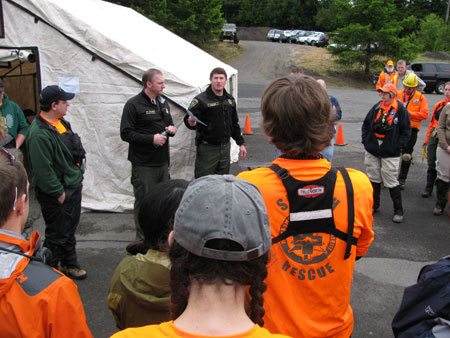Typically, the jurisdiction where the person was last seen when they disappeared is responsible.
Example: Sally, an Alzheimer's patient, walked out of her nursing home and was not found after a brief search by the staff. They called 911, who sent a local police officer. That police agency is responsible for the search for Sally, even when that agency calls other responders to assist them. (Example: if she is later found at the bottom of a ravine, the fire department's technical rescue team may be called in to extricate her).
Incidents like missing person searches, disasters, etc. all start - and end - at the local level.

While the incident may escalate to also include regional, state or federal resources, the initiating agency often remains responsible for the eventual outcome. Similar to other types of 911-type emergencies.
** At the end of each lesson, I'll challenge you with a simple task to address. I recommend that you write them down or capture them in Evernote, Google Docs, etc. as we will refer back to your answers later. Here is today's challenge:
YOUR TURN: ask around or search online for the name of the organization in your community that is responsible for the search for lost and missing people. (Hint: there may be several!)
Those local agencies responsible for SAR may include your local Sheriff or Fire Department or even your local Emergency Management Agency.
Depending on the type of missing person event (suspected drowning, walk-a-way from a nursing home, collapsed homes after a tornado, etc.) different agencies may be responsible for different things.
Are you a 'hard charger' and know already that you really want to build a future in SAR?
If so, I recommend this quick article and the free download that comes with it. It helps successful people do successful things!

